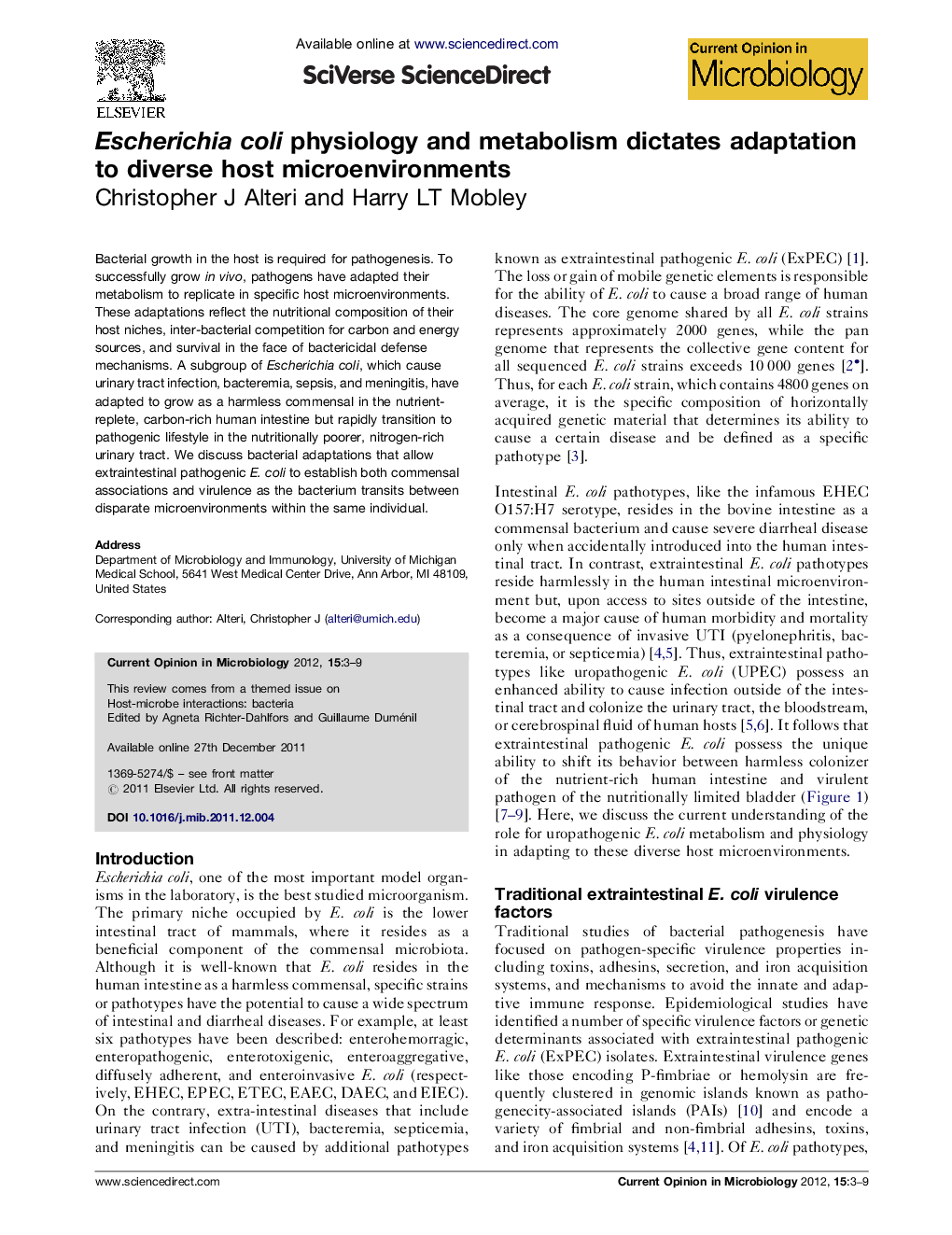| Article ID | Journal | Published Year | Pages | File Type |
|---|---|---|---|---|
| 3399183 | Current Opinion in Microbiology | 2012 | 7 Pages |
Bacterial growth in the host is required for pathogenesis. To successfully grow in vivo, pathogens have adapted their metabolism to replicate in specific host microenvironments. These adaptations reflect the nutritional composition of their host niches, inter-bacterial competition for carbon and energy sources, and survival in the face of bactericidal defense mechanisms. A subgroup of Escherichia coli, which cause urinary tract infection, bacteremia, sepsis, and meningitis, have adapted to grow as a harmless commensal in the nutrient-replete, carbon-rich human intestine but rapidly transition to pathogenic lifestyle in the nutritionally poorer, nitrogen-rich urinary tract. We discuss bacterial adaptations that allow extraintestinal pathogenic E. coli to establish both commensal associations and virulence as the bacterium transits between disparate microenvironments within the same individual.
► Uropathogenic E. coli are uniquely adapted to colonize disparate host niches in humans. ► Flexible carbon and energy metabolism give UPEC a fitness advantage in the intestine and urinary tract. ► The ability to cause UTI depends as much on bacterial physiology as it does on the well-considered virulence determinants.
